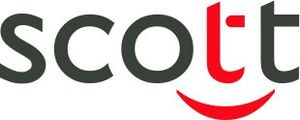IT Infrastructure Policy
-
1Computer & Email Usage
To help you do your job, the company may give you access to computers, computer files, the email system, and software. To make sure that all employees follow this policy, we may monitor computer and email usage.
We try hard to have a workplace that is free of harassment and sensitive to the diversity of our employees. Therefore, we do not allow employees to use computers and email in ways that are disruptive, offensive to others, or harmful to morale.
You cannot display, download, or email sexually explicit images, messages, and cartoons. You also may not use computers and email for ethnic slurs, racial comments, or anything that another person might take as harassment or disrespect.
You may not use email to ask other people to contribute to or to tell them about businesses outside of the company, religious or political causes, outside organizations, or any other non-business matters.
The company buys computer software licenses for business purposes. We do not own the copyright to this software or its documentation. You may only use software on local area networks or on multiple machines according to the software license agreement. The company prohibits the illegal duplication of software and its documentation.
If you know about any violations to this policy, notify your Supervisor, the Information Technology Department or any member of management. Employees who violate this policy are subject to disciplinary action, up to and including termination of employment.
-
2Internet Usage
The company may provide you with Internet access and a company email address to help you do your job. This policy explains our guidelines for using the Internet which includes browsing, sending, sharing and receiving messages through emails and other services. We do not allow personal use of the Internet and/or our email system and/or software.
All Internet data that is written, sent, or received through our computer systems is part of the company's official records. That means that we can be legally required to show that information to law enforcement or other parties. Therefore, you should always make sure that the business information contained in Internet email messages and other transmissions is accurate, appropriate, ethical, and legal.
The equipment, services, and technology that you use to access the Internet are the property of the company. Therefore, we reserve the right to monitor how you use the Internet. We also reserve the right to find and read any data that you write, send, or receive through our online connections or stored in our computer systems and that subject to approval from the Chief Executive Officer.
You may not write, send, read, or receive data through the Internet that contains content that could be considered discriminatory, offensive, obscene, threatening, harassing, intimidating, or disruptive to any employee or other person.
Examples of unacceptable content include (but are not limited to) sexual comments or images, racial slurs, gender-specific comments, or other comments or images that could reasonably offend someone on the basis of race, age, sex, religious or political beliefs, national origin, disability, sexual orientation, or any other characteristic protected by law.
The company does not allow the unauthorized use, installation, copying, or distribution of copyrighted, trademarked, or patented material on the Internet. As a general rule, if you did not create the material, do not own the rights to it, or have not received authorization for its use, you may not put the material on the Internet. You are also responsible for making sure that anyone who sends you material over the Internet has the appropriate distribution rights.
If you use the Internet in a way that violates the law or the company policies, you will be subject to disciplinary action, up to and including termination of employment. You may also be held personally liable for violating this policy.
The following are some examples of prohibited activities that violate this Internet policy:
Sending, sharing or posting discriminatory, harassing, or threatening messages or images
Using the organization's time and resources for personal gain
Stealing, using, or disclosing someone else's code or password without authorization
Copying, pirating, or downloading software and electronic files without permission
Sending, sharing or posting without authorization confidential material, trade secrets, or proprietary information outside of the organization
Violating copyright law
Failing to observe licensing agreements
Engaging in unauthorized transactions that may incur a cost to the organization or initiate unwanted Internet services and transmissions
Sending, sharing or posting messages or material that could damage the organization's image or reputation
Participating in the viewing or exchange of pornography or obscene materials
Sending or posting messages that defame or slander other individuals
Attempting to break into the computer system of the company, another organization or person
Refusing to cooperate with a security investigation
Sending or posting chain letters, solicitations, or advertisements not related to business purposes or activities
Using the Internet for political causes or activities, religious activities, or any sort of gambling
Jeopardizing the security of the organization's internet facility and electronic communications systems
Sending, sharing or posting messages that disparage another organization's products or services
Passing off personal views as representing those of the organization
Sending anonymous email messages
Engaging in any other illegal activities
-
3Workplace Monitoring
The company may conduct workplace monitoring to help ensure quality control, employee safety, security, and customer satisfaction.
All computer equipment, services, or technology that we furnish you are the property of the company. We reserve the right to monitor computer activities and data that is stored in our computer systems. We also reserve the right to find and read any data that you write, send, or receive by computer.
Because we are sensitive to employees' legitimate privacy rights, we will make every effort to guarantee that workplace monitoring is always done ethically and with respect and after approval from the Chief Executive Officer.
